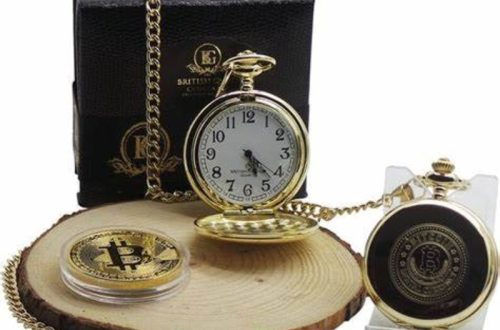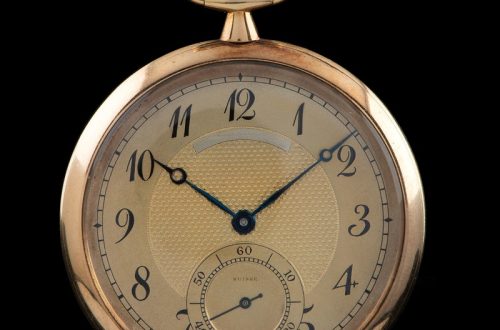Introduction
Mechanical watches represent the pinnacle of watchmaking craftsmanship. These intricate devices symbolize an age-old tradition where engineering meets artistry. Unlike their quartz counterparts, mechanical watches rely on a network of gears, springs, and levers to measure time. A significant aspect that fascinates watch enthusiasts and collectors is mechanical watch accuracy. This attribute determines how well a watch keeps time, making it crucial for anyone who appreciates horology.
The Appeal of Mechanical Watches
The charm of mechanical watches goes beyond mere functionality. They encompass a rich history of craftsmanship, embodying the artistry of skilled watchmakers. Each movement is a masterpiece, often decorated with intricate engravings and features that tell a story. For many, the allure lies in the fact that these watches represent hours of meticulous work and a dedication to perfection. Whether it’s a classic timepiece or a flashy modern design, mechanical watches offer both style and substance.
Understanding the factors that influence accuracy helps both potential buyers and current owners appreciate their mechanical watches even more. In this article, we will delve deep into the workings of mechanical watches, how they maintain accuracy, and what steps you can take to ensure that your timepiece remains as precise as possible. Whether you’re a seasoned collector or a first-time buyer, this guide will provide you with invaluable insights into mechanical watch accuracy and what it means for your timekeeping.
Understanding Mechanical Watch Accuracy
To comprehend mechanical watch accuracy, we must first look at how these watches function. Mechanical watches are powered by either manual or automatic movements, each with different implications on how accurately they keep time.
Manual and Automatic Movements
Manual Movements
Manual watches require the wearer to wind the crown to tighten the mainspring. This process stores energy that gets released gradually, moving the gears that measure time. A well-maintained manual watch can provide accurate timekeeping for years but requires regular winding. Owners of manual watches must understand the importance of daily or regular winding; otherwise, the watch will stop running, leading to the loss of timekeeping.
Automatic Movements
Automatic watches, on the other hand, utilize a rotor that winds the mainspring as the wearer moves. This feature means that, unlike manual watches, they can wind themselves with normal wear, making them more convenient. However, accurate timekeeping also depends on the user’s activity level; excessive inactivity can lead to the watch stopping. Feature-rich automatic watches often include elaborate complications, making them not only accurate but also visually stunning.
Both types of movements rely on a balance wheel and escapement mechanism for timing accuracy. These components oscillate to regulate the release of energy, thus measuring seconds, minutes, and hours. The precision of these components plays a crucial role in how accurately the watch keeps time.

Factors Affecting Mechanical Watch Accuracy
Many elements can impact the accuracy of mechanical watches. Understanding these factors helps in maintaining or enhancing performance.
External Factors
Temperature
Temperature changes can significantly affect the metal parts of a watch. These metals expand and contract with heat, influencing the accuracy of the watch. For example, mechanical watches may run faster in warmer conditions and slower when it’s cold. Manufacturers often recommend keeping watches within a temperature range to ensure optimal performance.
Magnetism
Magnetic fields can interfere with the internal movements of a mechanical watch. Items like smartphones, speakers, and even certain clothing can emit magnetic fields strong enough to disrupt timekeeping. Many modern watches feature anti-magnetic qualities, but older models might struggle with this. Proper care includes keeping your watch away from strong magnetic fields to prevent deviations in timekeeping.
Humidity
Excess moisture can lead to corrosion in the internal components of a mechanical watch. Humidity levels can also affect lubricant viscosity, impacting how freely components move. To combat issues related to humidity, consider storing your watch in a watch box with desiccants or using a moisture-absorbing device when not in use.
Internal Factors
Movement Type
Different brands and models feature various movements, which affect accuracy. For instance, Swiss movements are often celebrated for their precision and reliability. In contrast, lower-quality movements may face challenges in maintaining accuracy over time. Understanding the movement type of your watch can help you appreciate its capabilities and limitations.
Design and Craftsmanship
The overall design and craftsmanship also play a vital role. Higher-end mechanical watches often have features that enhance accuracy, such as higher-quality materials and meticulous assembly protocols. These watches use various complications, which include gears designed to improve precise time measurement, adding both beauty and functionality to the timepiece.
Maintaining Mechanical Watch Accuracy
Once you understand the factors that affect mechanical watch accuracy, you can take steps to ensure your watch runs efficiently.
Regular Maintenance and Servicing
Like any finely tuned machine, mechanical watches require regular servicing. A well-maintained watch reduces the likelihood of deviations from the correct time. Most manufacturers recommend servicing every three to five years to check for lubrication, cleaning, and necessary adjustments. This is particularly important for ensuring the longevity and reliable performance of the watch.
Proper Winding Techniques
For both manual and automatic watches, winding them properly can help maintain performance. If you have a manual watch, a consistent winding routine is essential for optimal accuracy. For automatic watches, wearing them regularly or utilizing a watch winder keeps them functioning optimally. Understanding your watch’s winding requirements will prevent it from running slow or stopping altogether.
Periodic Calibration
Some mechanical watches may require periodic calibration to stay aligned with standard time. This can be done at watch service centers. Many enthusiasts recommend using a timing machine to monitor accuracy over time, allowing for precise adjustments when necessary. Regular checks allow you to catch issues before they become a long-term problem.

Mechanical vs. Quartz Watch Accuracy
When exploring mechanical watch accuracy, it’s also beneficial to compare it with quartz watches.
Accuracy Comparison
Quartz watches are generally more accurate than mechanical ones. A typical quartz watch may gain or lose only a few seconds per month, while mechanical watches can drift by several seconds per day depending on their movement and environmental factors. The inherent design differences between mechanical and quartz movements contribute greatly to this disparity.
Strengths and Weaknesses
The strength of mechanical watches lies in their craftsmanship and art. They showcase extraordinary engineering and are often favored by collectors for their complexity. On the other hand, quartz watches provide reliability and minimal maintenance, making them suitable for everyday use as they seldom require adjustments after being initially set.
Both types of watches have their place in horology. Mechanical watches offer an appreciation for traditional craftsmanship, while quartz watches emphasize practical reliability. Many watch enthusiasts own one of each type to enjoy the best of both worlds.
Common Issues with Mechanical Watch Accuracy
Despite their elegance, mechanical watches can experience various issues that affect accuracy. Being aware of these issues can help you address them effectively.
Over-Winding
Over-winding occurs in manual watches when too much pressure is applied to the crown. This can cause the mainspring to break, disrupting the watch’s ability to maintain accurate time. To prevent this, only wind the watch until you feel resistance; there’s no need to force it further.
Dirt Build-Up
Dirt and debris can accumulate in the movement, affecting the watch’s ability to function accurately. Regular maintenance helps prevent such issues. If you notice a decline in accuracy or performance, consider taking your watch for professional cleaning. Cleaning and lubrication are critical to prolonging the life and accuracy of your watch.
Temperature Sensitivity
As previously discussed, temperature changes can affect a mechanical watch’s performance. Keeping your watch in a stable environment helps maintain accuracy. Ideally, store your watch in a cool, dry place to minimize temperature fluctuations. If you travel frequently, pay attention to the climate changes that could impact your watch’s performance.

Conclusion
Understanding mechanical watch accuracy is essential for anyone who owns or intends to own a timepiece. By grasping how movements work and what factors influence timing, you can better appreciate the importance of maintenance and care.
Regular servicing, proper winding techniques, and awareness of environmental impacts will help keep your mechanical watch running at its best. In the competitive landscape of horology, the precision of timekeeping is celebrated. Whether you’re a timepiece enthusiast, a collector, or someone looking to make an informed purchase, appreciating the intricacies of mechanical watch accuracy will enhance your overall experience.
So, invest time in understanding your mechanical watch, appreciate its craftsmanship, and ensure it remains a reliable companion on your wrist. Your commitment to these principles will reward you with years of faithful timekeeping and enjoyment from your stunning mechanical watch.





